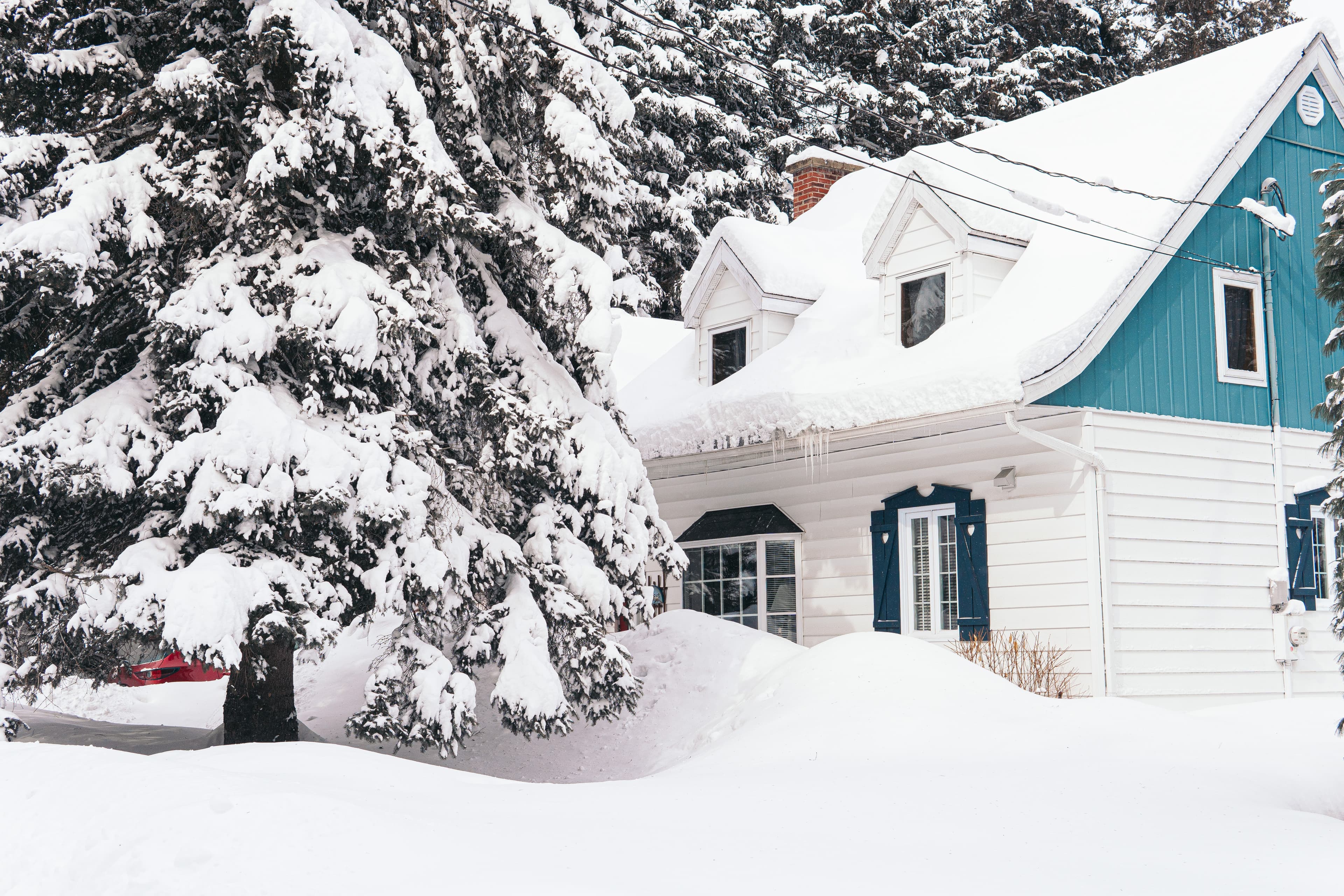The first few snowfalls of the year conjure images of cozy nights inside, snowball fights, and light, fluffy flakes covering the town. While snow can be fun for kids and beautiful for adults, it can also be dangerous for homeowners. Even a few inches can significantly impact your home. Learn about the different types of house damage from snow and how you can prevent them with
winter maintenance tips.
#1) Ice Dams Can Damage Your Roof
Ice dams occur when water pools along your roof and in your gutters and then freezes. These ice dams can significantly damage your gutters, tear at your shingles, and melt into your house. Ice dams are caused by uneven heating on your roof. For example, if your attic isn’t insulated, heat could leak out and melt that snow. The water would then run down into your cold gutters and refreeze.
Prevent It: Fixing your insulation and keeping an evenly tempered roof is the best way to limit the impact of ice dams. However, you should also remove these dams if they form. This can be done with a roof rake but is a very labor-intensive process. This is why many homeowners try to find preventative solutions instead.
#2) Snow Creates Stress for Your Roof
The first snowfall of the year might not put much pressure on your roof, but the risk increases the more flurries fall. The most dangerous risk to your home because of snow is a roof collapse. It only takes four feet of fresh snow, or two feet of compressed snow, to create enough weight to significantly put stress on your roof. Some roofs are made the handle more snow weight, but you are taking a chance by keeping the snow up there.
Prevent It: Before winter, have your roof inspected. A qualified roofer should be able to point out any leaks or weaknesses to repair before the snow starts to fall. When snow does accumulate, use the roof rake to pull it down. Many have extension poles so you can reach high up on your roof.
#3) Melting Snow Causes Leaks and Damage
One of the biggest threats to your home is when the snow starts to melt. Water can seep into cracks and leak into your home. Small cracks that you might not have noticed can grow over winter, causing the water to flood your space and create unexpected house damage from snow.
Prevent It: Along with sealing cracks and leaks as soon as you discover them, you can reduce snowmelt damage by setting up good draining on your roof and around your home. This will help the water get off of your house and away from any cracks that you might have missed. Good drainage can also help with ice dams if the water gets whisked away before it can refreeze.
Recommended Reading: Do I Need Flood Insurance for My House? #4) Tracked in Water Can Hurt Your Home Interior
Water is the enemy of your home interior. Tracked-in water from walking around in the snow can damage hardwood floors and make your carpet look faded and dingy. While one set of snow-covered boots won’t cause an immediate issue, your home can start to look worn after a whole winter’s worth of snow.
Prevent It: Set up a mudroom, or at least a mud area, by your main door. This is where your family can take off their shoes and snow-covered outerwear before entering the house. This will limit the mess that you have to clean up while protecting your flooring.
#5) Slippery Walkways Can Be Dangerous
Not only do you need to worry about house damage from snow in the winter, but you also have to think about bodily damage! If ice freezes on your walkway then it could be impossible for people to cross, and you could create a dangerous situation. Many home insurance claims are made each year because people fell on slippery walkways. Slippery walkways also aren’t ideal if you are
selling your home in winter. You don’t want the first impression of your home to be of someone falling or having a hard time reaching your door.
Prevent It: Make sure you shovel your driveway as soon as the snow falls, and adjust your drainage so any melted ice flows away from the sidewalk. You may want to invest in a snowblower if you are in a colder environment. This will keep you safe and create a more welcoming environment around your home.
Be Proactive and Prevent House Damage From Snow
If you are moving to a cold area for the first time and are concerned about the amount of snow and ice that may accumulate, talk to your Realtor® about the best practices for home care. They may be able to recommend a good roofer or offer advice for the right roof style or home tools that you need to keep your home safe. Finding a Realtor® with local knowledge through
EffectiveAgents.com can help you prepare for any winter weather that is ahead.


